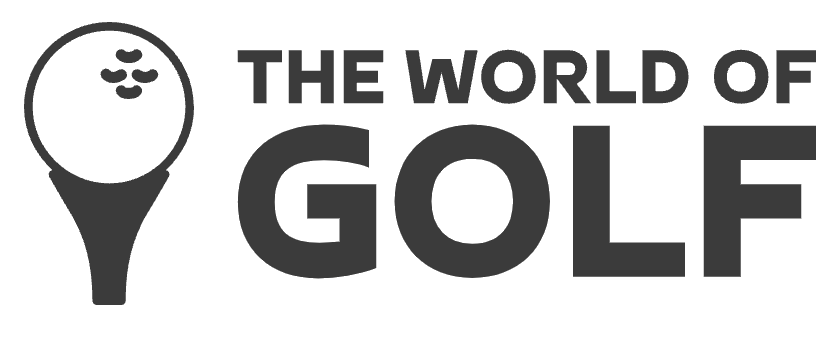Cobra Golf, a renowned name in the world of golf, has established itself as a leading manufacturer of high-quality golf equipment over the years. With a legacy spanning almost five decades, Cobra Golf has consistently pushed the boundaries of innovation and technology to enhance golfers’ performance on the course. But amidst all its success and popularity, one question lingers on the minds of avid golf enthusiasts: Who exactly owns Cobra Golf?
Brief Overview of Cobra Golf as a Leading Golf Equipment Manufacturer
Cobra Golf was founded in 1973 by Thomas L. Crow, who had an ambitious vision to revolutionize the game of golf through innovative equipment design and engineering. Since its inception, Cobra Golf has been committed to producing top-notch drivers, irons, wedges, hybrids, and putters that cater to players of all skill levels. What sets Cobra Golf apart from its competitors is its relentless pursuit of cutting-edge technologies that enhance performance and deliver exceptional results.
The company’s dedication to research and development has resulted in breakthrough innovations such as adjustable drivers with customizable loft settings and advanced materials like carbon fiber used in clubhead construction. These advancements have earned Cobra Golf a reputable standing in the industry.
Intriguing Question: Who Exactly Owns Cobra Golf?
The ownership history of Cobra Golf is fascinatingly intertwined with various key players within the golf industry. The journey began when American Brands Inc., a diversified conglomerate at that time, acquired Cobra Golf from Thomas L. Crow in 1996.
This move allowed American Brands Inc., known for its expertise across multiple consumer product sectors including tobacco and liquor brands, to expand into the lucrative golf equipment market. Subsequently, American Brands Inc.’s ownership changed hands when it was acquired by Fortune Brands in 1999.
Fortune Brands recognized the potential within the golf industry and sought to strengthen their presence by investing in Cobra Golf. This strategic move aimed to leverage the brand’s reputation and capitalize on its loyal customer base.
However, the ownership landscape evolved once again when PUMA SE, a global sports lifestyle brand famous for its apparel and footwear, acquired Cobra Golf from Fortune Brands in 2010. This unexpected acquisition raised eyebrows within the golf community as PUMA SE ventured into the equipment manufacturing sector for the first time.
The rationale behind this purchase was to diversify PUMA’s offerings and establish a comprehensive presence in the golf market. Stay tuned as we delve deeper into the subsequent changes in ownership that eventually led to Acushnet Holdings Corp.’s acquisition of Cobra Golf, and explore how these transitions have impacted the renowned brand’s trajectory in terms of innovation, product development, and market positioning.
The Early Days of Cobra Golf
In 1973, the world of golf witnessed the birth of a prominent player in the industry: Cobra Golf. This iconic golf equipment manufacturer was founded by Thomas L. Crow, an innovative entrepreneur with a passion for the sport.
Crow’s vision was to design clubs that would help recreational golfers improve their game by offering forgiving and user-friendly equipment. Cobra Golf quickly gained recognition for its unique approach to club design.
One of its earliest breakthroughs was the introduction of oversized irons, known as “Baffler” clubs, which revolutionized the game by making it easier for golfers to get shots airborne from difficult lies such as rough or sand traps. This innovation garnered attention and popularity among players seeking to enhance their performance on the course.
Acquisition by American Brands Inc.
Following its successful establishment, Cobra Golf caught the attention of American Brands Inc., a diversified conglomerate with interests in various industries. In 1996, American Brands Inc., recognizing Cobra Golf’s potential and its growing market share within the golf industry, decided to acquire the company.
Background on American Brands Inc.
American Brands Inc., headquartered in New York City, was a renowned corporation that owned several well-known brands across multiple sectors such as tobacco (including leading brands like Lucky Strike), consumer products (such as Schick razors), distilled spirits (Jim Beam), and more. The company had a long history of strategic acquisitions across different industries to diversify its portfolio and strengthen its position in each sector where it operated.
Motivation behind the acquisition
The acquisition of Cobra Golf by American Brands Inc. aligned perfectly with their strategy of expanding their presence in sports-related ventures. By entering into the golf equipment market through this acquisition, American Brands Inc. aimed to capitalize on the growing popularity of the sport and leverage Cobra Golf’s innovative designs and technology to further enhance its overall brand offering.
American Brands Inc. recognized the potential for synergy between Cobra Golf and their existing businesses, envisioning opportunities for cross-promotion and joint marketing efforts. Furthermore, by acquiring a successful golf equipment manufacturer like Cobra Golf, American Brands Inc. could tap into the lucrative golf industry, diversify its revenue streams, and solidify its position as a key player in the sports market.
Acquisitions and Ownership Changes
Fortune Brands’ acquisition of American Brands Inc.
In the early 1990s, American Brands Inc., a conglomerate with diverse holdings in various industries, including tobacco, distilled spirits, and consumer goods, made a significant move by acquiring Cobra Golf. However, this ownership was short-lived as Fortune Brands saw an opportunity to expand its presence in the golf industry. In 1997, Fortune Brands completed the acquisition of American Brands Inc., which included Cobra Golf among its assets.
Fortune Brands’ interest in the golf industry
Fortune Brands’ interest in expanding into the golf industry was driven by several factors. Firstly, they recognized the growing popularity of golf as both a recreational activity and a professional sport. This understanding stemmed from their market research indicating an increase in participation rates and consumer spending on golf-related products.
Additionally, Fortune Brands identified golf as an attractive niche due to its affluent target demographic and long-standing tradition. Moreover, Fortune Brands acknowledged that owning Cobra Golf would provide them with a strong foothold in the highly competitive golf equipment market.
They aimed to capitalize on Cobra Golf’s reputation for producing innovative clubs and high-performance equipment. By incorporating Cobra Golf into their portfolio of brands, Fortune Brands sought to leverage their existing distribution networks and marketing expertise to strengthen Cobra Golf’s market presence.
Impact on Cobra Golf’s ownership structure
The acquisition by Fortune Brands significantly impacted Cobra Golf’s ownership structure. Under American Brand Inc.’s ownership, Cobra Golf operated as part of a larger conglomerate with diverse business interests.
However, after being acquired by Fortune Brands, it became part of a family of companies exclusively focused on the golf industry. This change brought about increased synergies within this specialized sector while providing dedicated resources for research and development initiatives specific to the needs of golfers.
Furthermore, Cobra Golf benefited from Fortune Brands’ financial strength, allowing for greater investment in manufacturing capabilities, marketing campaigns, and talent acquisition. Overall, the acquisition by Fortune Brands marked a turning point for Cobra Golf, establishing a more focused and dedicated ownership structure that aimed to propel the brand to new heights within the competitive golf equipment market.
PUMA’s Entry into the Picture
One of the significant turning points in Cobra Golf’s ownership history came when PUMA SE, a global leader in sports apparel and footwear, acquired the company from Fortune Brands. This acquisition marked PUMA’s bold entry into the golf equipment industry and showcased their strategic intent to diversify beyond their well-established fashion-oriented product lines. By venturing into the realm of golf equipment manufacturing, PUMA aimed to expand their presence in the sports arena and capitalize on Cobra Golf’s reputable brand.
PUMA SE’s Acquisition of Cobra Golf from Fortune Brands
In 2010, PUMA SE successfully acquired Cobra Golf from its previous owner, Fortune Brands. The acquisition was part of PUMA’s larger strategic vision to become a key player in various sporting realms.
By acquiring Cobra Golf, PUMA gained access to a renowned golf equipment manufacturer with a strong heritage and loyal customer base. This move allowed PUMA to extend its reach within the golf industry and complement its existing apparel and footwear offerings with premium golf clubs, bags, and accessories.
PUMA SE’s Diversification Strategy beyond Apparel and Footwear
PUMA SE has long been recognized as a prominent global brand known for its innovative athletic fashion. However, seeking further growth opportunities and recognizing the potential synergies between different sports categories, they strategically pursued diversification beyond apparel and footwear alone. Acquiring Cobra Golf was seen as an astute move that enabled them to enter a niche market while leveraging their operational expertise in design, marketing, distribution, and retail experience.
Synergies between PUMA and Cobra Golf
The acquisition of Cobra Golf by PUMA SE brought together two entities that shared common values centered around innovation, performance, and excellence. PUMA’s extensive resources and marketing prowess provided Cobra Golf with enhanced brand visibility and access to a wider international customer base.
Additionally, PUMA’s expertise in product design and development offered new avenues for technological advancements in Cobra Golf’s equipment offerings. This synergy between PUMA and Cobra Golf also extended to retail partnerships, as PUMA’s existing relationships with golf apparel retailers facilitated increased exposure for Cobra Golf products.
The integration of both brands’ supply chains further streamlined the manufacturing process, ensuring efficient production and timely delivery of high-quality golf equipment. Overall, the acquisition by PUMA SE not only expanded the company’s product portfolio but also infused fresh energy into Cobra Golf, allowing it to thrive under the new ownership while benefiting from synergies that propelled them towards continued success in the competitive golf industry.
The Current Ownership Structure of Cobra Golf
Acushnet Holdings Corp.’s purchase of Cobra Golf from PUMA SE
In 2010, Acushnet Holdings Corp., a leading golf equipment and apparel company, acquired Cobra Golf from PUMA SE. This acquisition marked a significant milestone in the ownership journey of Cobra Golf.
Acushnet Holdings Corp., which already owned prominent golf brands such as Titleist and FootJoy, saw the potential in adding Cobra Golf to its portfolio. The transaction involved a financial agreement between the two companies, resulting in Acushnet becoming the new owner of Cobra Golf.
Background on Acushnet Holdings Corp.
Founded in 1910, Acushnet Holdings Corp. has established itself as a key player in the golf industry over the past century. The company’s commitment to excellence and innovation has earned it a strong reputation among professional and amateur golfers alike. With its headquarters in Fairhaven, Massachusetts, Acushnet operates globally, catering to a wide range of customers with its diverse product offering.
Strategic rationale behind the acquisition
Acquiring Cobra Golf presented several strategic advantages for Acushnet Holdings Corp. By integrating an esteemed brand like Cobra into its existing portfolio, Acushnet gained access to new market segments and expanded its customer base. Moreover, the acquisition allowed for synergistic collaborations between different brands under the Acushnet umbrella, fostering cross-pollination of ideas and expertise among their respective research and development teams.
Key Figures Involved in Owning and Managing Cobra Golf
Cobra Golf has witnessed various individuals and entities playing pivotal roles throughout its ownership history.
A: Thomas L.Crow – Founder
Thomas L.Crow holds tremendous significance as he founded Cobra Golf back in 1973. His entrepreneurial vision and passion for the sport set the foundation for what would eventually become a renowned golf equipment manufacturer. Crow’s commitment to innovation and his relentless pursuit of excellence propelled Cobra Golf to great heights.
B: Fortune Brands – Previous Owner
Fortune Brands played a significant role as the previous owner of Cobra Golf. As a diversified consumer goods company, Fortune Brands recognized the potential profitability within the golf industry and acquired Cobra Golf in 1996. Their ownership allowed for strategic investments and resource allocation that contributed to Cobra Golf’s growth and development during this period.
C: Puma SE – Former Owner
Puma SE, a globally recognized sports brand, took ownership of Cobra Golf in 2010 following its acquisition from Fortune Brands. Puma’s expertise in apparel and footwear complemented Cobra Golf’s product range, leading to innovative collaborations within the golf industry. Under Puma’s ownership, Cobra Golf continued to strengthen its brand identity through various marketing initiatives.
D: David Maher – President, CEO at Acushnet Holdings Corp.
David Maher assumed leadership as President and CEO of Acushnet Holdings Corp., overseeing its diverse portfolio of golf brands including Cobra Golf. With extensive experience in the golf industry, Maher has been instrumental in driving strategic decisions related to brand management, product development, and market expansion for Cobra Golf.
Notable Innovations and Achievements by Cobra Golf under Different Ownerships
A: Introduction to notable innovations by each owner
Throughout its history under different ownerships, Cobra Golf has consistently demonstrated a commitment to innovation within the golf equipment industry. From pioneering oversized iron clubheads introduced by Thomas L.Crow himself in the early days to advanced technologies developed under Fortune Brands’ tenure and subsequent enhancements made during PUMA SE’s ownership period, each era brought notable advancements that contributed significantly to players’ performance on the golf course.
B: Impact on product development and brand reputation
Under different ownerships, Cobra Golf’s product development efforts have been influenced by the respective companies’ resources and expertise. Each owner brought a unique perspective, resulting in the introduction of cutting-edge technologies, superior materials, and refined manufacturing processes. These innovations not only improved performance but also enhanced Cobra Golf’s brand reputation as a leader in golf equipment.
Future Prospects
Looking ahead, Cobra Golf under Acushnet Holdings Corp.’s ownership is poised for continued growth and success. With access to Acushnet’s vast resources and distribution channels, Cobra Golf can further expand its global reach while leveraging synergies within the portfolio of golf brands. By capitalizing on its legacy of innovation and commitment to quality, Cobra Golf is well-positioned to remain a prominent force in the highly competitive golf industry.
Conclusion
Cobra Golf’s journey through various ownerships has shaped it into an iconic brand associated with innovation, performance, and excellence. From Thomas L.Crow’s humble beginnings to being part of Acushnet Holdings Corp., each phase has contributed to its growth and success.





